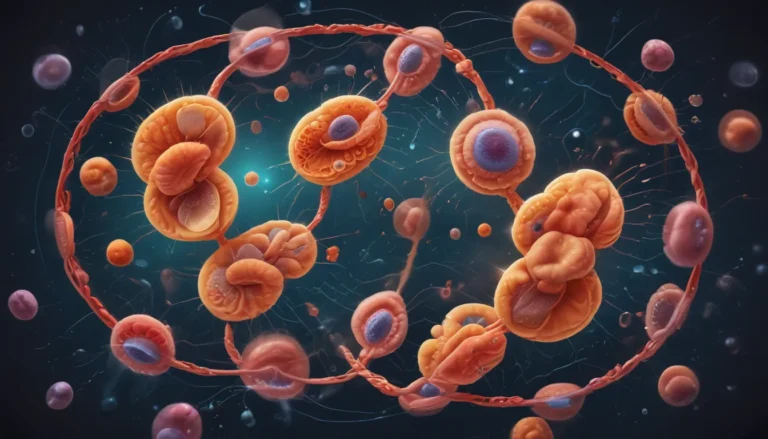A Note About Images: The images used in our articles are for illustration purposes only and may not exactly match the content. They are meant to engage readers, but the text should be relied upon for accurate information.
In our modern world, non-renewable resources hold a significant role, shaping the way we live, work, and move through life. From powering our homes to fueling transportation systems, these finite resources are essential to our daily routines. However, as we continue to rely on non-renewable resources such as fossil fuels, it is crucial to understand the implications and limitations associated with their use. In this article, we will delve into the realm of non-renewable resources and explore eight fascinating facts that shed light on the importance of finding alternative and sustainable solutions for a greener future.
Uncovering the Reality of Non-Renewable Resources
Non-renewable resources, including coal, oil, and natural gas, collectively known as fossil fuels, remain the primary source of energy worldwide. These resources power industries, transportation systems, and homes on a global scale. Despite their dominance in the energy landscape, it is essential to recognize that non-renewable resources took millions of years to form. Fossil fuels, for instance, are the result of ancient plants and animals undergoing intense heat and pressure over geological timescales. This process highlights the value and scarcity of these non-renewable resources, emphasizing the need for prudent management and conservation practices.
Facing the Challenge of Depletion
Due to their finite nature, non-renewable resources are at risk of depletion. The continuous extraction and consumption of these resources without sustainable practices can lead to their eventual exhaustion. This reality underscores the urgency of finding sustainable alternatives and adopting responsible resource management strategies to ensure a stable future for generations to come.
Impact on the Environment
The utilization of non-renewable resources carries significant environmental consequences. The extraction, processing, and combustion of fossil fuels result in the release of harmful greenhouse gases, such as carbon dioxide, into the atmosphere, contributing to climate change. Additionally, these activities can disrupt ecosystems, damage habitats, and contaminate water sources, highlighting the need for environmentally conscious practices and the exploration of cleaner energy alternatives.
Geopolitical Implications of Non-Renewable Resources
The distribution of non-renewable resources across the globe has geopolitical ramifications. Regions with abundant resources often wield political and economic influence, shaping international relationships and conflicts. Diversifying energy sources and reducing dependence on finite resources are crucial steps towards promoting global stability and energy security.
Balancing Economic Growth and Sustainability
Non-renewable resources have been instrumental in driving economic growth and development in various countries. Export revenue, job creation, and infrastructure development are among the benefits derived from these resources. However, an over-reliance on non-renewable resources can lead to economic instability and vulnerability to market fluctuations. Therefore, transitioning towards renewable energy sources is essential to build a more resilient and sustainable economy.
Innovations and Solutions
Technological advancements have made it possible to convert non-renewable resources into alternative fuels with reduced emissions and environmental impacts. For example, coal can be processed to produce synthetic natural gas, offering a cleaner energy option. These innovations present opportunities to mitigate the environmental footprint of non-renewable resource usage and pave the way for a more sustainable energy future.
Embracing Renewable Energy Sources
While non-renewable resources have fueled human progress for centuries, the transition to renewable energy sources is vital for a sustainable future. Harnessing solar, wind, hydro, and geothermal energy can provide long-term solutions to meet our energy needs without depleting finite resources or further harming the planet. By embracing innovation and sustainable practices, we can create a greener and more resilient world for future generations.
Conclusion: Paving the Way for a Sustainable Future
In conclusion, the unparalleled role of non-renewable resources in our society cannot be understated. However, the challenges posed by their finite nature, environmental impact, and geopolitical implications necessitate a shift towards sustainable alternatives. By conserving resources, promoting renewable energy solutions, and adopting environmentally conscious practices, we can build a brighter and more sustainable future for all. As we reflect on the remarkable facts surrounding non-renewable resources, let us embrace the potential of renewable energy and pave the way for a greener tomorrow.
FAQs: Exploring Non-Renewable Resources
-
What are non-renewable resources?
Non-renewable resources are natural resources that cannot be replenished at a rate equal to their consumption. Examples include fossil fuels like coal, oil, and natural gas, as well as minerals and metals. -
Why are non-renewable resources considered limited?
Non-renewable resources took millions of years to form and cannot be replenished once depleted, making them finite in quantity. -
What are the environmental impacts of non-renewable resource extraction?
Non-renewable resource extraction can lead to habitat destruction, water and air pollution, and contribute to climate change through the release of greenhouse gases. -
Can non-renewable resources be replaced by renewable alternatives?
Yes, renewable energy sources such as solar, wind, hydro, and geothermal power offer sustainable alternatives to non-renewable resources. -
How can individuals reduce dependence on non-renewable resources?
Individuals can conserve energy, use public transportation or carpool, recycle, and support renewable energy initiatives to reduce dependence on non-renewable resources and promote sustainability.
As we navigate the intricate world of non-renewable resources, let us strive to make informed choices that promote a sustainable and environmentally conscious future. By embracing renewable energy sources, fostering innovation, and advocating for responsible resource management, we can create a world that thrives on renewable energy solutions and ensures a brighter tomorrow for all. Let us embark on this journey together, towards a greener and more sustainable future.






